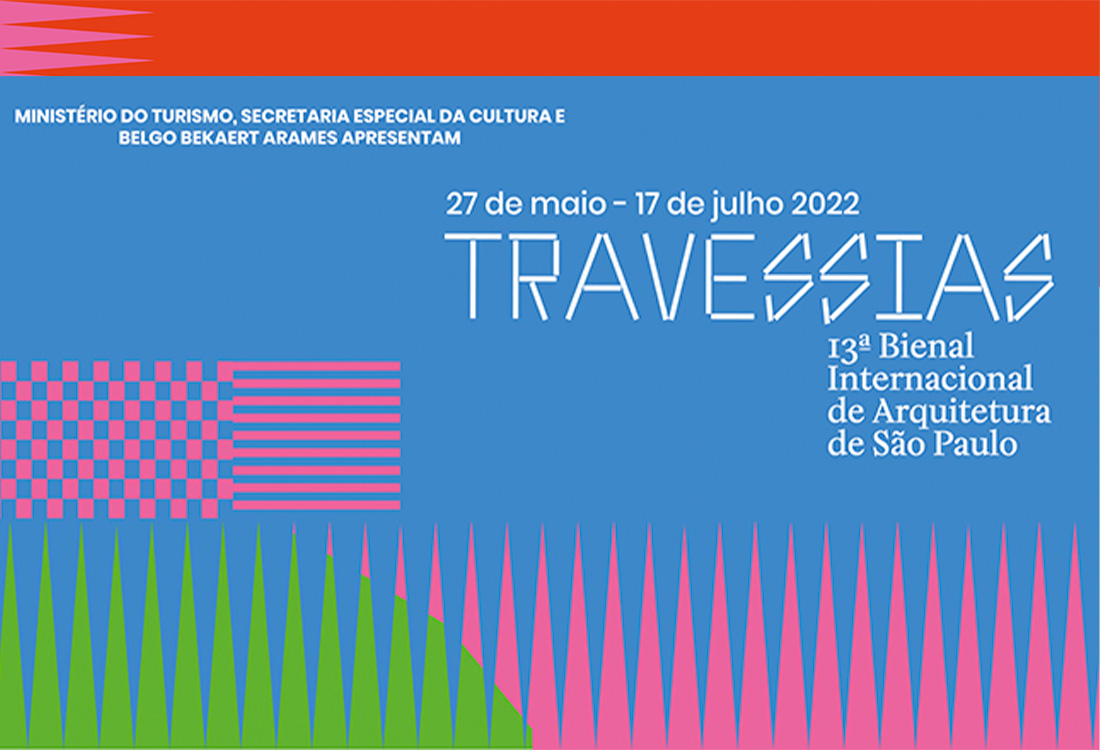
20 May 13ª Bienal Internacional de Arquitectura de São Paulo
De esta forma, la 13ª edición de la Bienal Internacional de Arquitectura de São Paulo, que tendrá lugar en 2022, asume la RECONSTRUCCIÓN como su provocación central inicial. Parte de la idea de reconstruir, refundir y renovar las relaciones de los grupos sociales con sus espacios domésticos, de los ciudadanos con los espacios públicos y de las parcelas personales y profesionales, que se dan en los espacios de encierro y en los de uso colectivo, durante y después de la pandemia de COVID-19.
RECONSTRUCCIÓN nos invita a repensar problemas y soluciones en diferentes aspectos. Para comprender mejor este tema, lanzamos lineamientos preliminares que nos orientaron en la propuesta de bases de este evento nacional. La cuestión de la democracia propone una reflexión crítica sobre cómo garantizar y estimular las prácticas políticas en los espacios urbanos en un contexto global y en un país que enfrenta amenazas de recesión democrática. Pensando en cómo hacer de las ciudades más accesibles, seguras, acogedoras, atractivas, pero también un lugar donde los contrastes y los conflictos sean latentes, discutiendo cuestiones sobre la presencia de diferentes clases sociales, razas y géneros. También se propone plantear soluciones innovadoras en relación a la planificación y gestión democrática, a partir de experiencias vinculadas al territorio.
El eje Cuerpos lanza la discusión sobre la relación entre el espacio y temas como la interseccionalidad, las vulnerabilidades y las políticas sociales. Sugerimos una reflexión sobre cómo garantizar prácticas colectivas frente a problemas de salud pública, discriminación, violencia y vulneración de derechos, para repensar cómo garantizar el acceso, la convivencia y el tránsito de las personas en las ciudades. Además, anuncia la urgencia de garantizar programas específicos para grupos específicos, como niños, jóvenes, adultos mayores, personas con necesidades especiales, especialmente en territorios vulnerables en medio de la crisis impuesta, ampliando el debate sobre las vulnerabilidades de los cuerpos. en los flujos a través de la ciudad. En relación a los espacios arquitectónicos, también propone una reflexión sobre la flexibilización de los espacios domésticos, profesionales e institucionales ante el desafío de garantizar la diversidad de usos y la salud colectiva en el contexto de aislamiento y reinicio de actividades.
Entendiendo la Memoria como el agente colectivo que nos confronta ante la extrañeza de un mundo nuevo y nos reconforta en relación a su permanencia, pero también como un proceso de reelaboración permanente de ese pasado en el presente y que ha la propiedad de conservar o borrar cierta información, lanzamos el desafío de entender cómo utilizar la preexistencia para la reinvención de la vida cotidiana en las ciudades. Este eje también pretende reflejar cómo la arquitectura y la infraestructura urbana pueden colaborar para construir una memoria colectiva que haga más acogedor el proceso de (re)ocupación, (re)construcción y (re)significación de las ciudades.
En este sentido, Información abre horizontes para el debate de políticas urbanas y sociales a partir de una temática que toca todos los aspectos de la vida contemporánea, pero aún restringida a especialistas. Proponemos arrojar luz sobre temas de privacidad y protección de datos, así como experimentos con modelos de gobernanza de datos públicos y privados en la gestión de cuerpos y prácticas cotidianas, estimulando el debate sobre cartografías colaborativas, reconocimiento facial, discriminación algorítmica, internet de las cosas y urbanismo, ciencia de datos desde la perspectiva de la gobernanza de la ciudad.
Cerramos los ejes rectores de esta Bienal con la cuestión de la Ecología, fundamental para el equilibrio entre lo urbano y lo natural, la discusión sobre ecología propone una reflexión sobre la planificación de las ciudades atenta al equilibrio ambiental y al desarrollo de actividades productivas, enfocada en la calidad de vida de su población a partir de temas como el cambio climático, las ciudades bajas en carbono, la agricultura urbana y la seguridad alimentaria.




